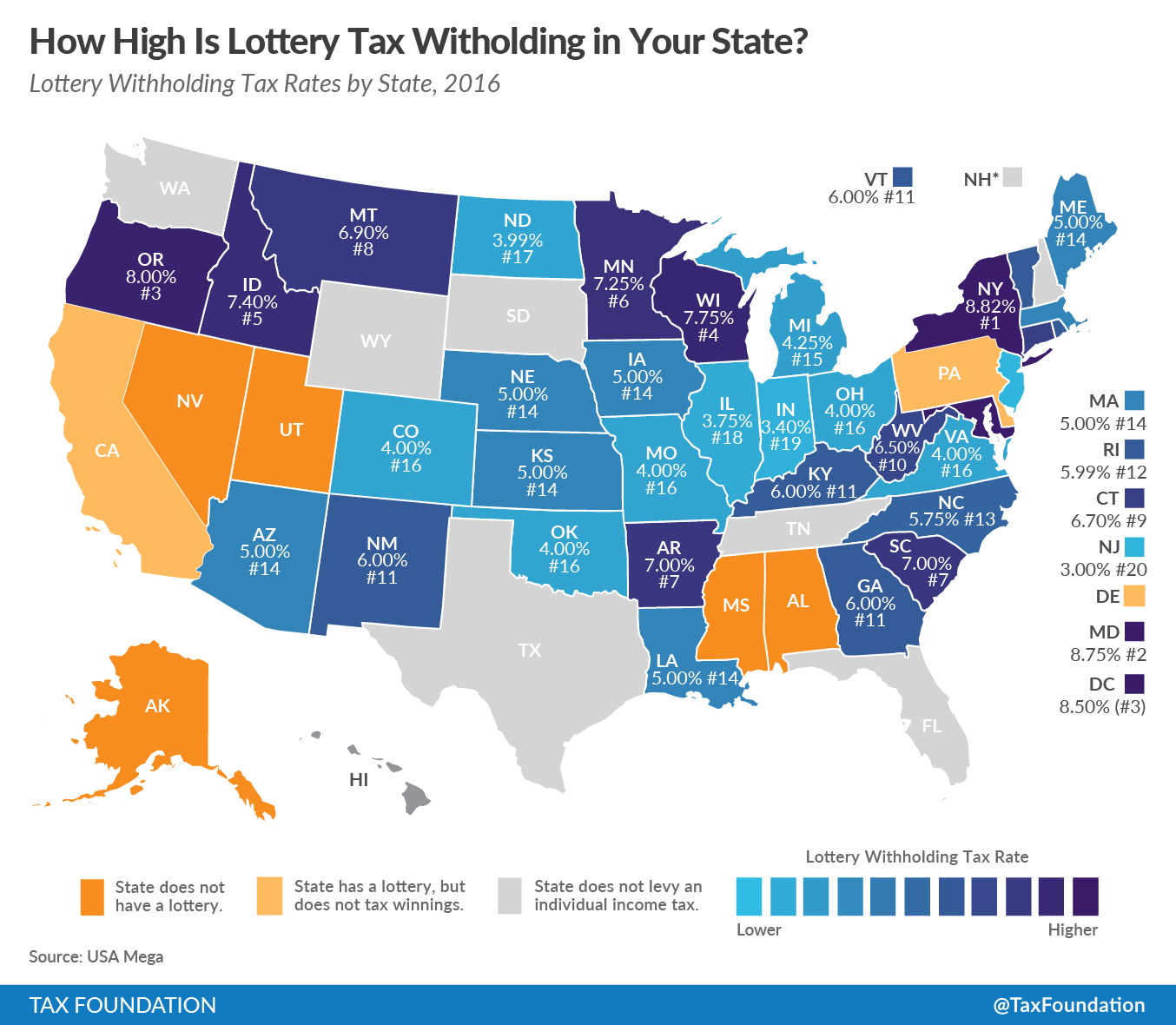If you play the lottery, it pays to live in a state that foregoes an individual income taxAn individual income tax (or personal income tax) is levied on the wages, salaries, investments, or other forms of income an individual or household earns. The U.S. imposes a progressive income tax where rates increase with income. The Federal Income Tax was established in 1913 with the ratification of the 16th Amendment. Though barely 100 years old, individual income taxes are the largest source of tax revenue in the U.S. , and I don’t just mean in the obvious way. Nine states do not impose a general income taxA tax is a mandatory payment or charge collected by local, state, and national governments from individuals or businesses to cover the costs of general government services, goods, and activities. (two of these states tax interest and dividend income), and a further three states exempt lottery winnings. And, by pure happenstance, 84.7 percent of Powerball winnings since November 2015 have been in those twelve states.
That streak continued over the weekend, when a $420.9 million Powerball jackpot was won by a thus-far unclaimed ticket in Tennessee, one of the two states (with New Hampshire, where July’s $487 million Powerball jackpot winners resided) that only tax interest and dividend income.
Of course, one hopes that the winner of a prize north of $400 million would be prudent enough to pull down some healthy interest and dividend income in future years, but here too there’s good news for the winner, because earlier this year, Gov. Bill Haslam (R) signed legislation that will phase out the Hall income tax on interest and dividend income over six years, with full repeal by 2022.
Let’s hope that the winner is in a position to appreciate that policy change. Unfortunately, according to the National Endowment for Financial Education, about 70 percent of major lottery winners ultimately declare bankruptcy, with many of them experiencing financial distress three to five years after their windfall. Fortuna is a capricious tutelary, and many are broken on her wheel. (Consider the Washington Post Magazine’s remarkable 2005 profile of the sudden rise and tragic fall of West Virginia Powerball winner Jack Whittaker.)
Certainly, though, the new winner can appreciate not having to pay state income taxes on his or her winnings—a savings of $24 to $29 million compared to Tennessee’s neighboring states. Many states, by contrast, not only tax lottery winnings, but establish a withholding rate for just such winnings. States which do not withhold offer some advantages to winners, but of course the tax bill still has to be paid. At the other end of the spectrum, states with high withholdingWithholding is the income an employer takes out of an employee’s paycheck and remits to the federal, state, and/or local government. It is calculated based on the amount of income earned, the taxpayer’s filing status, the number of allowances claimed, and any additional amount the employee requests. rates effectively receive a no-interest loan from the winner until tax returns are filed and a refund is processed.
Playing Powerball probably isn’t the best use of one’s resources. But if you play, it doesn’t hurt to live in a state like Tennessee.
